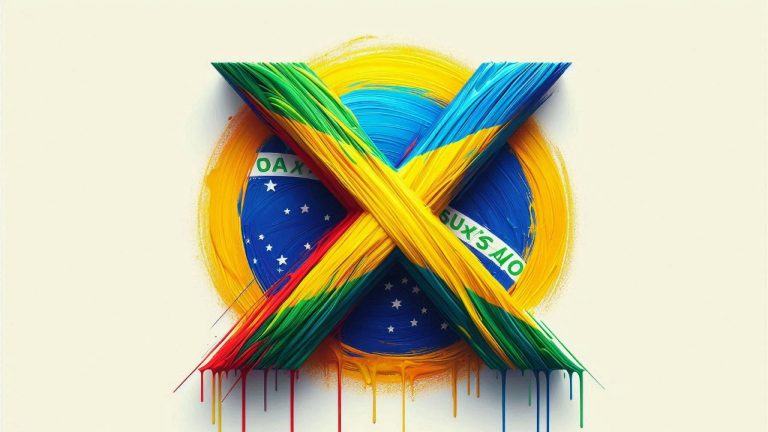 The Russian Energy Ministry has officially proposed limiting crypto mining activities in certain special regions affected by energy shortages. The authorities have the right to impose such a ban following the enactment of the recent national cryptocurrency law this month. Russian Energy Ministry Proposal Would Limit Crypto Mining Activities in Special Regions While authorities have […]
The Russian Energy Ministry has officially proposed limiting crypto mining activities in certain special regions affected by energy shortages. The authorities have the right to impose such a ban following the enactment of the recent national cryptocurrency law this month. Russian Energy Ministry Proposal Would Limit Crypto Mining Activities in Special Regions While authorities have […]

A ban on Bitcoin? Even the suggestion as part of a thought experiment is bound to chafe the crypto community.
Bitcoin has been called many things, but a “balanced budget trap” is probably not one of them. Or at least not noticeably — until now.
A recent paper published on the Federal Reserve Bank of Minneapolis website suggests that Bitcoin (BTC), or something like it, could one day force the United States federal government to balance its budget.
That would arguably vex policymakers and legislators because they want to keep all their spending options open in case of serious emergencies, like a COVID-19 pandemic or a recession. A burst of spending can stimulate an economy, after all.

With Lula supporting Moraes and the Bar Association challenging the decision, Brazil’s Supreme Court must decide X’s fate amid free speech concerns.
One week after Justice Alexandre de Moraes ordered the suspension of X in Brazil, the Supreme Federal Court will now review the decision in an upcoming plenary session. Until then, the platform’s future in the country remains uncertain, as the legal dispute centers around complex aspects of misinformation and free speech.
However, the events of the previous days could have lasting implications for how social media platforms operate within legal frameworks beyond Brazil.
Cointelegraph compiled key developments over the dispute and the potential impact of the Brazilian Supreme Court’s final decision as the case enters the crossroads between free speech and social media regulation.
 The Brazilian Supreme Court ordered a nationwide ban on X after a prior order mandating the social platform to assign a local representative was ignored. Brazilians began to lose access to the site on Saturday, as the Supreme Court prohibited citizens from using virtual private network (VPN) software to circumvent the blockage, establishing fines of […]
The Brazilian Supreme Court ordered a nationwide ban on X after a prior order mandating the social platform to assign a local representative was ignored. Brazilians began to lose access to the site on Saturday, as the Supreme Court prohibited citizens from using virtual private network (VPN) software to circumvent the blockage, establishing fines of […]

Binance has assured its users that their funds are safe after Venezuela cut off access to the exchange and social media platform X.
Venezuela’s government has blocked access to crypto exchange Binance, social media platform X and other online services amid unrest over disputed presidential election results.
On Aug. 9, local anti-censorship organization VE sin Filtro posted to X that it “detected a DNS block on the cryptocurrency exchange Binance, which affects the normal operation of its website and mobile application.”
“Like several websites of companies from different segments in Venezuela, including social networks, Binance pages have been facing access restrictions,” the exchange’s Latin American-focused X account posted on Aug. 10.

Data suggested that more than ten million Chinese nationals lived outside the country, giving Bybit access to a larger pool of crypto users.
Cryptocurrency exchange Bybit has reportedly opened registration and identification verification for Chinese nationals outside the country.
According to reports from Bybit users on June 6, the exchange will allow overseas Chinese nationals to register and trade crypto on the platform. Users can register with a Chinese national ID, but trading crypto as a national based in China was seemingly not permitted.
With a headquarters in Dubai, Bybit is one of the largest cryptocurrency exchanges by trading volume, behind Coinbase and Binance. The firm previously pulled out of Canada in response to the regulatory environment but has expanded into other markets, including Kazakhstan and the Netherlands. Cointelegraph reached out to Bybit for comment but did not receive a response at the time of publication.
 Telegram, the messaging powerhouse, has been banned in Spain on a case investigating the hosting of unauthorized content owned by media companies in Spain. The Audiencia Nacional (National Court), one of the highest courts in Spain, has authorized this ban until Telegram cooperates by sending the required info to the court. Audiencia Nacional Bans Telegram […]
Telegram, the messaging powerhouse, has been banned in Spain on a case investigating the hosting of unauthorized content owned by media companies in Spain. The Audiencia Nacional (National Court), one of the highest courts in Spain, has authorized this ban until Telegram cooperates by sending the required info to the court. Audiencia Nacional Bans Telegram […]
Three Arrows Capital founders Kyle Davies and Zhu Su are barred from regulated activities or acting as top execs at any financial firm in Singapore.
Singapore's central bank has issued nine-year prohibition orders to Kyle Davies and Zhu Su over alleged violations of the country's securities laws at their co-founded crypto hedge fund Three Arrows Capital (3AC).
In a Sept. 14 statement, the Monetary Authority of Singapore (MAS) said Su and Davies will be banned from regulated activities during the prohibition period that started Sept. 13.
They also won't be permitted to manage, act as a director, or be a substantial shareholder of any capital market services business in Singapore.
In its decision to bar the pair, MAS said it found further securities law violations when it undertook further investigations into the bankrupt 3AC and its co-founders.
MAS claimed Su and Davies failed to notify the central bank that 3AC employed a new business representative, gave false information to the regulator, and failed to have an appropriate risk management framework in place.
Related: Huobi’s new name, HTX, raises community eyebrows
Loo Siew Yee, MAS' assistant managing director of policy, payments and financial crime said “MAS takes a serious view of Mr Zhu’s and Mr Davies’ flagrant disregard of MAS’ regulatory requirements and dereliction of their directors’ duties."
"MAS will take action to weed out senior managers who commit such misconduct” she added.
Magazine: Asia Express: Tencent’s AI leviathan, $83M scam busted, China’s influencer ban

Adedeji Owonibi stated that the Central Bank of Nigeria should have created a blockchain regulation strategy in 2021 instead of cutting ties between cryptocurrency exchange firms and local banks.
A group of Nigerian digital asset professionals took to the stage at the Stakeholders in Blockchain Technology Association of Nigeria (SIBAN)’s Digital Assets Summit 2023 in Abuja, to discuss the future of digital asset regulation in Nigeria.
In the panel titled The Future of Digital Assets: Regulatory Uncertainty and the Way Forward, the group discussed why implementing digital assets regulation and blockchain policy has been slow in Nigeria.
The developmental regulation created by The National Information Technology Development Agency (NITDA) is a big step toward understanding and creating a favorable environment for the blockchain and crypto industry, according to Adedeji Owonibi, CEO of Convexity. Owonibi stated that this step is what the Central Bank of Nigeria (CBN) should have taken back in 2021 instead of cutting ties between cryptocurrency exchange firms and local banks.

Acknowledging NITDA’s strides in crafting a blockchain policy, Preye Itonyo, the deputy director of the agency’s Digital Economy Development Department, highlighted the regulatory hurdle posed by the decentralized nature of blockchain, resulting in a lack of understanding of blockchain and cryptocurrency concepts in Nigeria. He pointed out that this lack of understanding fueled the 2021 crypto-traditional finance ban.
In a recent global survey, Africa’s largest economy, Nigeria, was found to be the most cryptocurrency-aware population in the world and 90% of the Nigerian respondents expressed interest in investing in cryptocurrencies in the next year. However, there is a need for regulation in the industry to foster security while encouraging scalability.
Related: 99% of Nigerians are crypto aware — ConsenSys report
In response to this, Itonyo stated that the already established blockchain policy is the first step Nigeria has taken towards ensuring the safety and protection of crypto investors. He went ahead to reveal that a steering committee has been set up by NITDA to facilitate the implementation strategies of the national blockchain policy. According to Itonyo, the CBN and the Nigerian Communications Commission (NCC) are members of the committee.
Collect this article as an NFT to preserve this moment in history and show your support for independent journalism in the crypto space.
Magazine: How to protect your crypto in a volatile market: Bitcoin OGs and experts weigh in

A Supreme Court judge has rejected a request from Epic Games that would've immediately loosened Apple's App Store payment rules, to the potential benefit of crypto and NFT apps.
Crypto app developers hoping for a loosening of Apple's App Store rules will have to wait longer after a United States Supreme Court held off on granting a request to let apps direct users to payments outside of Apple’s ecosystem.
An Aug. 9 decision from Justice Elena Kagan declined to let a federal appeals court decision take immediate effect as Epic had asked — with no explanation for the decision.
Not surprisingly, the Supreme Court (by decision of Justice Kagan, who is the SCOTUS judge to whom such 9th Cir. matters are assigned) denied Epic Games' motion to enforce the injunction it won in district court 2 years ago.
— Florian Mueller (@FOSSpatents) August 9, 2023
Epic was right; legal standard favored Apple.
1/3 pic.twitter.com/UnpnphgapG
In April, the Court of Appeals for the Ninth Circuit ruled Apple violated California’s competition laws by not allowing apps to direct users to non-Apple linked payment solutions.
The ruling meant that developers such as Epic Games would be able to funnel users to alternative payment methods, giving them an option that circumvents Apple’s 30% tax on in-app payments.
The 30% Apple tax has also been a hurdle for crypto firms, including those that want to offer iOS users the ability to purchase non-fungible tokens.
At the moment, there exists no means to buy an NFT on an app listed on Apple’s App Store other than through its in-app payments system, which charges a 30% commission rate and only allows purchases using fiat.
Apple has REALLY tight rules regarding any app that is used on their devices. typically they require a 30% tax on all financial transactions, but bc that's impossible with crypto the way it is, they just ban the apps that have direct links/usage to swapping and trading.
— Caleeeb (@adacaleeeb) August 7, 2023
Apple’s guidelines don’t allow apps to take crypto to unlock app functionality or make in-app purchases using crypto.
This has led to most crypto apps offering only limited functionality, such as being able to view balances and assets only. Crypto exchange apps are unaffected.
Related: Lawmakers probe Apple’s App Store policies on blockchain, NFTs
Justice Kagan’s rejection of Epic’s request means Apple will get at least a few more months of reprieve from the ruling as it plans a Supreme Court appeal to the decision.
The Ninth Circuit ruling will come into effect if the Supreme Court refuses Apple’s appeal, however.
In its argument to lift the appeals court hold Epic claimed it applied a “lax legal standard” in granting the stay which would injure Epic and “innumerable consumers and other app developers for a significant period of time.”
Apple hit back saying the stay has been in place for two years already and doesn’t apply to Epic anyway. Apple booted Epic’s Fortnite off the App Store in August 2020 for attempting to workaround Apple’s in-app payments system.
NFT Collector: On-chain music sounds off with latest raise, artistic duo Hackatao find their lane